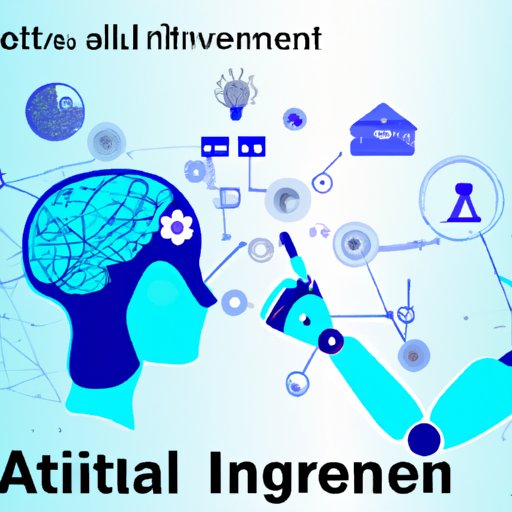Introduction
Artificial intelligence (AI) is defined as “the simulation of human intelligence processes by machines, especially computer systems” (Oxford Reference). AI has become increasingly commonplace in recent years due to its ability to automate processes, improve decision-making capabilities, analyze large amounts of data, and optimize efficiency. However, with this increased prevalence comes a range of potential dangers that must be considered.

Potential for Misuse of Data
One of the major dangers posed by AI is the potential for data to be collected and used without consent. AI algorithms are able to process vast amounts of data from multiple sources, which can provide valuable insights into individual behavior. However, this data can also be used for malicious purposes, such as targeted advertising or identity theft. As AI becomes more widespread, it is essential that stringent regulations are put in place to protect individuals’ privacy.
Loss of Jobs to Automation
The introduction of AI into the workplace has the potential to drastically reduce the number of jobs available. According to a report by McKinsey Global Institute, between 400 million and 800 million workers worldwide could be displaced by automation by 2030. This could have a devastating impact on the global economy, particularly in low-income countries. To mitigate this risk, governments should focus on providing retraining and upskilling opportunities for those affected by automation.
Unintended Consequences of AI Decision-Making
AI algorithms are designed to make decisions based on data, but there is no guarantee that these decisions will always be correct. The unpredictable nature of AI means that it is difficult to predict the outcomes of certain decisions, which could lead to unforeseen consequences. For example, in 2018, an AI system used by the US Department of Defense was found to be mistakenly labeling cars as tanks. To ensure accuracy, it is important that AI systems are subject to regular human oversight.
Prejudice Embedded in Algorithms
AI algorithms are often trained using existing data sets, meaning they can inherit any biases present in the data. This can lead to AI systems making decisions that are prejudicial or discriminatory. In order to prevent this, there needs to be increased transparency and accountability when creating AI algorithms. Companies should be held responsible for the decisions made by their AI systems and be required to provide explanations for any decisions that may be deemed unfair.
Security Risks and Vulnerabilities
AI systems can be vulnerable to malicious actors who seek to exploit weaknesses in the system. Cyberattacks such as data breaches, malware injections, and denial of service attacks can all be used to disrupt AI systems, potentially leading to serious financial losses or reputational damage. It is therefore essential that organizations take steps to ensure their AI systems are secure, such as implementing robust authentication protocols and conducting regular security audits.
Autonomous Weapons Development
The development of autonomous weapons systems poses a significant risk to humanity. These weapons are capable of making decisions without human input, which could lead to devastating consequences if left unchecked. To minimize this risk, ethical considerations must be taken into account when creating AI weapons. Governments should also collaborate to create international regulations governing the use of these weapons.
Conclusion
AI has the potential to revolutionize the way we live and work, but it also carries with it a range of potential dangers. From data misuse and job automation to unintended consequences and prejudice embedded in algorithms, it is essential that these risks are understood and steps are taken to mitigate them. This includes implementing strong security protocols, increasing transparency and accountability, and taking ethical considerations into account when creating AI weapons.
(Note: Is this article not meeting your expectations? Do you have knowledge or insights to share? Unlock new opportunities and expand your reach by joining our authors team. Click Registration to join us and share your expertise with our readers.)
